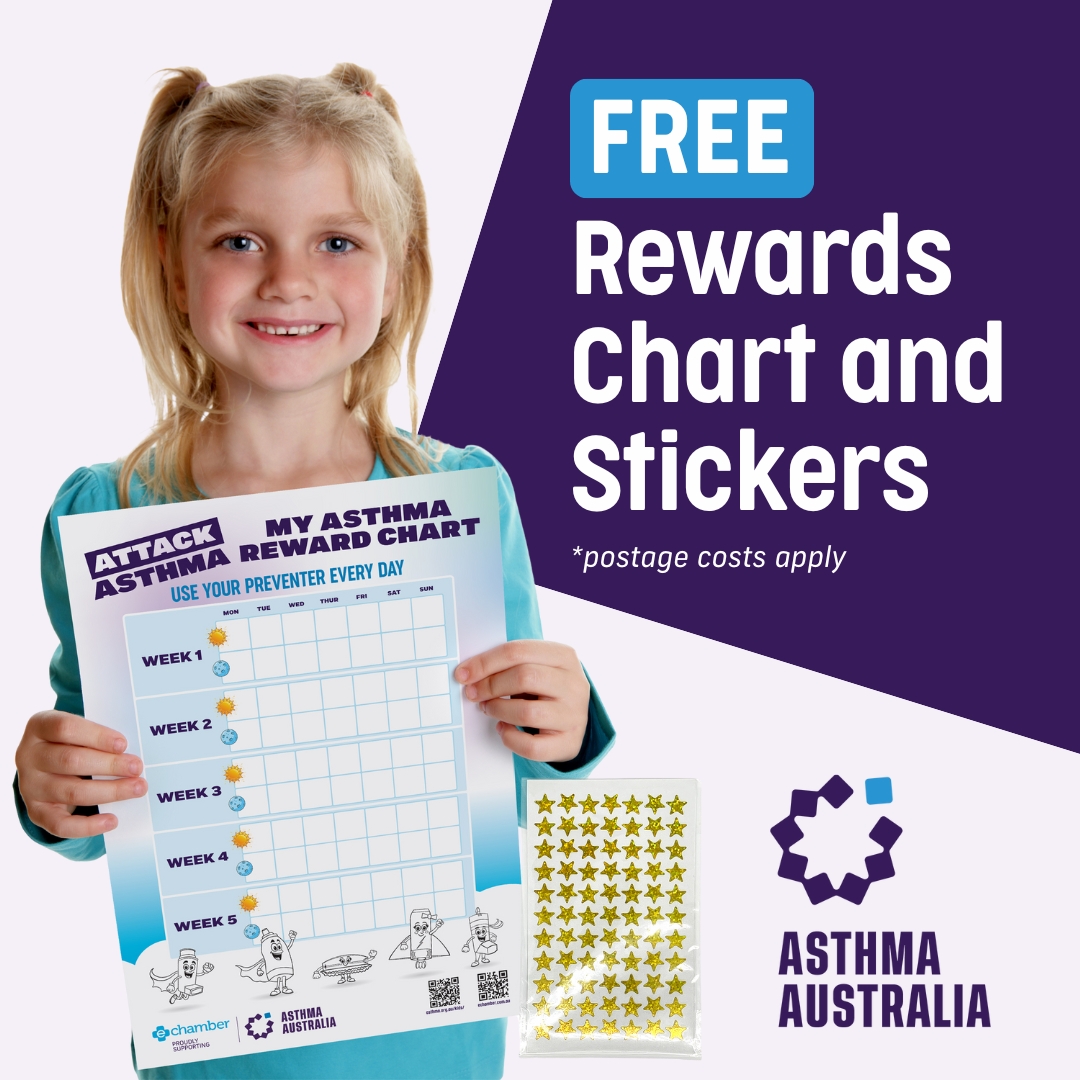Asthma control also includes a good diet
We know eating healthy foods is good for overall health. There is also emerging evidence a balanced diet can lead to improved airway health as well.
When you live with asthma, or care for someone who does, there is no need to go without some of the delicious delights of life.
Healthy eating with appropriate portion sizes is more important than ever.
Asthma Australia Senior Educator Gemma Crawley says eating plenty of fruit and vegetables every day is important to overall health, and asthma health.
“It’s important to eat a range of healthy and nutritious foods to maintain lung health,” she says.
“There is also evidence of an antioxidant rich diet by eating plenty of vegetables, 5 serves and fruit 2 serves every day; may help to reduce the risk of asthma flare-ups and improve lung function, compared to intakes low in vegetables and fruit.”
A good diet really does make you healthier
Nutrition Australia Victorian Division CEO Lucinda Hancock says people across the community could benefit from healthy eating, especially in this time of heightened awareness around COVID-19 and viruses.
“I urge everyone to keep picking the fruit and vegetables from shelves, wash them and enjoy their health benefits,” she says.
According to the Australian Asthma Handbook, some observational studies have shown a link between a Mediterranean diet high in fish, fruit and vegetables and a lower risk of wheeze and asthma in children.
In Australia, a study revealed there was a reduced risk of current asthma in children who ate fish regularly, especially oily fish.
And in a UK study, children who reported eating lots of fruit had better lung function results than children who said they ate no fruit.
The Australian Healthy Eating Guidelines recommend a mix of foods including grains and cereals, vegetables, fruit and legumes, high-protein lean meats, fish, nuts or seeds, and dairy.
It advises only eating fats and high-sugar foods in small amounts.
Asthma, food allergies and intolerances
Despite common beliefs, foods are not a common trigger for asthma.
Some people with asthma report symptoms when consuming specific foods. If you believe this happens to you, visit your doctor for a referral to a specialist allergist for further investigation.
Dairy is a common target, but there is little evidence to support the idea that milk, yoghurt and cheese can trigger asthma.
Most children benefit from dairy foods to make sure they consume their required amount of calcium.
As asthma and allergies follow a similar immune response pathway, food allergies can trigger respiratory symptoms.
A varied diet including vegetables and fruits is the best way to maintain overall and asthma health.
As well as healthy eating, now is the time to have an asthma review and update your written Asthma Action Plan. Make sure you discuss your Asthma Control, ensure you’re using your preventer medication as prescribed by your doctor and while you are there, have your doctor check your device technique.
If we can help you to breathe and live freely, contact our Asthma Educators on our free-call number 1800 ASTHMA (1800 278 462).
References
https://www.eatforhealth.gov.au/guidelines/australian-guide-healthy-eating
https://www.betterhealth.vic.gov.au/health/ConditionsAndTreatments/asthma-and-food-allergies





 1800 278 462
1800 278 462



